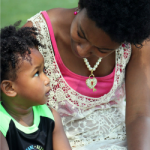Parenting | Parent Self-Care
 This week’s ’10 Ways’ offers tips about you looking after you. Especially at Christmas time, parents can become frazzled with all the organising and preparations. It is important to try and carve out even a small bit of time for yourself to recharge the batteries and ensure you enjoy Christmas time too. Read on for our ‘10 Ways to Parent Self-Care’.
This week’s ’10 Ways’ offers tips about you looking after you. Especially at Christmas time, parents can become frazzled with all the organising and preparations. It is important to try and carve out even a small bit of time for yourself to recharge the batteries and ensure you enjoy Christmas time too. Read on for our ‘10 Ways to Parent Self-Care’.
- “I’m not perfect, I’m good enough” (Winnicot): Recognise that you are one person and you are doing the best you can. Give yourself a pat on the back – don’t wait for someone else or your child to or it may never happen!
- Routine: Have a core routine for each day of the week and stick to it. Don’t try to get everything done every day, set days out for different chores. Make sure you have time in the routine to play and interact with your children. Parents usually feel better when they have had a quality connection with their child.
- Eat: Remember you must meet your own needs so you can meet those of your children. The basic need to eat is really important as when we are hungry we are less inclined to have patience and the energy to deal with everyday issues and challenges.
- Sleep: It is easy to say sleep but it is more important to do it. Try to get children to bed early so you can be in bed early too. Aim for at least 6 hours sleep per night. Those with infants will only achieve this in a number of sessions of sleep so it is really important to try and nap during the day if you can.
- Stay healthy: Do not neglect your health – value your own health and well being as much as you do your child’s.
- Exercise: This can release the happy hormones and allow you time to think, reflect and make plans, or just breathe in the fresh air and tell yourself it will all work out. You can also use the time to chat with your child. Simply playing in the park or back garden can be good exercise and fun with your child also.
- Take time out for yourself: If you struggle with this, begin with 10 minutes for yourself and as time goes on, increase it. Maybe once a week you can plan a couple of hours to yourself. Be creative in how you achieve this – it will be worth the effort.
- Socialise: Isolation is a key issue for those parenting alone. Challenge yourself to network with other parents, join clubs or courses. Your self-esteem and confidence and that of your child’s will be enhanced with socialising.
- Ask for help: Ask for help whenever you can from family or a friend. They will stop offering if you never take them up on it. Children enjoy being with other people. It is good for you both to have time apart and for children to know there are other people who can care for them.
- Be an adult: You are not just a parent so make time for you to be you. It’s good for children to see you as a person with many roles, not just as Mam or Dad.
Read other articles from our weekly ’10 Ways to’ series of parenting tips. You can read the full series here.
Join Geraldine, our parenting expert, on Facebook on this and other parenting topics for a weekly Q&A live in our One Family Parenting Group which is a closed Facebook group (meaning that only members can read posts) that anyone can join. Post your questions and share your experiences.
Find out more about our parenting skills programmes and parent supports. For support and information on these or any related topics, call askonefamily on lo-call 1890 66 22 12 or email us.







 Join our annual toy appeal and make a real difference this Christmas. By organising a collection of toys in your workplace you can help us make Christmas a little bit easier for the families we work with. As we all know, Christmas can be a time of stress and worry for many parents but in particular for families who are on a strict budget that doesn’t allow for presents.
Join our annual toy appeal and make a real difference this Christmas. By organising a collection of toys in your workplace you can help us make Christmas a little bit easier for the families we work with. As we all know, Christmas can be a time of stress and worry for many parents but in particular for families who are on a strict budget that doesn’t allow for presents.